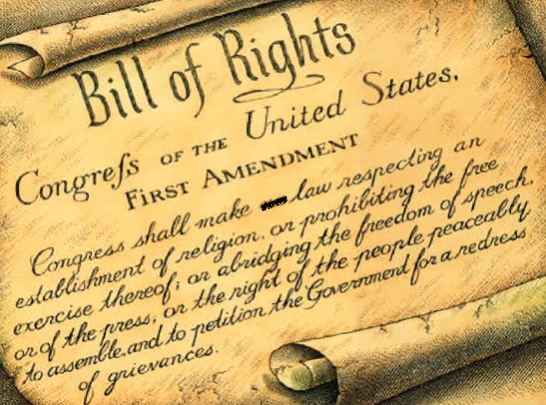When discussing what government ought, or ought not, to be doing, it’s common to hear people say something like ‘the job of government is to protect us’, or ‘to protect our lives’. But that’s not what the Declaration of Independence says.
That document — which lays out what we might call the American Theory of Government — says that men form governments, not to protect their lives, but to protect their rights. Not to protect life, but to protect the right to life.
Does this sound like an academic distinction? If so, then you’re not paying attention to the justification that politicians are currently using to shut down whole economies in the name of protecting people’s lives by taking away their rights. Contrast His Excellency’s approach,
I believe that public health trumps everything.
with the approach of a governor (Kristi Noem of South Dakota) who not only grasps the distinction, but appreciates its importance:
Our constitution ensures that the citizen’s rights are protected. I agree with the role of our government as set forth in our state and in our national constitution.
The people themselves are primarily responsible for their safety. They are the ones that are entrusted with expansive freedoms. They’re free to exercise their rights to work, to worship, and to play. Or even to stay at home, or to conduct social distancing.
If there’s ever been a time for people to become aware of this distinction, and to insist that it be respected, now would be that time.
But even in more normal times, consider how many statutes and regulations exist to protect you from harming yourself by making the ‘wrong’ decisions, whether that’s ingesting the wrong substances, or hiring the wrong person to replace your shower head, or engaging in the wrong kind of game of chance, or accepting the wrong compensation for entering into a dalliance. As a general rule, keeping you safe requires suppressing your rights (such as your right to own a gun, or carry it with you), as opposed to protecting your right to keep yourself safe. The two could hardly be more different.
Something similar happens when discussing schools and education. You hear people saying that ‘the state is responsible for providing an education’ to every student.
Of course, Article 83 of the state constitution (which supposedly provides the basis for this claim) doesn’t say anything remotely like this. It actually says very nearly the opposite. But even if you accept the court’s authority to make the constitution say whatever they want, what they want it to say is that the state is responsible for providing the opportunity for an education.
The difference between providing a thing, and providing the opportunity to get that thing, is like the difference between night and day. And the funny thing is, this is understood by any child who is familiar with the saying that you can lead a horse to water, but you can’t make him drink. It’s only politicians and pundits and publishers who seem to have trouble with it.
Sentences like
We hold these truths to be self-evident, that all men are created equal, that they are endowed by their Creator with certain unalienable rights, that among these are life, liberty, and the pursuit of happiness. That, to secure these rights, governments are instituted among men, deriving their just powers from the consent of the governed.
and
An adequate public elementary and secondary education in New Hampshire is one which provides each educable child with an opportunity to acquire the knowledge and learning necessary to participate intelligently in the American political, economic, and social systems of a free government.
aren’t just ad libs, tossed off at press conferences, or during town hall meetings. They are carefully weighed and considered, and subjected to extensive review and revision before being made public, and every word in such a sentence is there because it belongs there, and to leave it out would change the meaning of the sentence significantly.
If we discuss ‘protecting life’ instead of ‘protecting the right to life’, or discuss ‘providing education’ instead of ‘providing the opportunity to get an education’, we derail those discussions at the earliest possible moment, leading away from the possibility of understanding our problems, let alone correcting them.
Charles Kettering said that a problem well-posed is half solved. In contrast, a problem posed by leaving out crucial words (like ‘rights’, ‘opportunity’, ‘educable’, and ‘necessary’) is unlikely to ever be solved.
The really interesting question is whether the people who leave those words out actually want the problems to be solved, or whether they have some other agenda.
